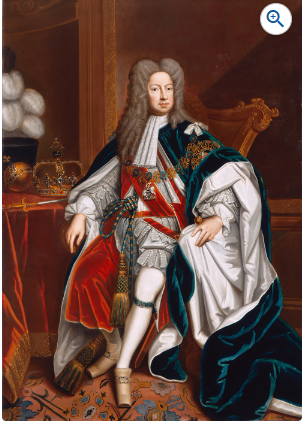Many readers enjoyed the column “Idioms make delicious word salads” from several weeks ago, so I figured that I would put out a “part II” of phrases we use all the time without knowing where they may have originated. Sometimes, the origins are surprising, but make perfect sense once you “mull it over.”

Speaking of mulling it over, that phrase is used to mean, ‘ “give me some time to think about it” and it can be traced back to the 19th century when having one’s grains milled for them took time waiting for the process to complete. Telling someone you will “mull it over,” means you intend to take your time and think it through slowly.
Have you ever procrastinated with that TPS report at work and your exasperated boss finally says, “Just bite the bullet and get it done”?
This idiom actually has a pretty grisly origin that is believed to go all the way back to the era of the American Civil War; however, some believe it may have originated in the Indian Rebellion (against British rule) of 1857.
According to Grammarly, in those days, anesthesia on the battlefield was rarely available, so a wounded soldier might be given a bullet to bite down on while a surgeon hacked off an injured limb. That explanation makes that TPS report sound like a walk in the park, doesn’t it?

If you still procrastinate with that TPS report, your boss may get exasperated and ‘read you the “riot act.” This idiom comes from an actual act of Parliament.
The grammarians over at Britannica explain that King George I was extremely paranoid and that even the smallest of groups could foment a full-on rebellion by partisans of the former Stuart dynasty and so in 1714, Parliament passed the “Riot Act” which stated that any group of 12 or more subjects could be considered unruly enough as to be riotous. If a group didn’t disperse after being officially read the Riot Act, they might be cooling their heels in the Tower of London.
The Riot Act also became the origin for language in the First Amendment of the U.S. Constitution guaranteeing citizens the right to “peaceably assemble.”
So, let’s say you still drag your feet on the TPS report and the boss fires you, then you might find yourself so poor that you don’t even “have a pot to’ . . . relieve in.

It is generally thought that the idiom originated from the pre-industrial era when people would collect all of the household’s urine in one pot and sell the contents to a tanner; however, the folks over at the Oxford English Dictionary, say that singular explanation is “close but no cigar.”
According to the OED, the phrase actually first appeared in a 1934 typescript of Djuna Barnes’s novel “Nightwood” and it reads: “My heart aches for all poor creatures putting on dog, and not a pot to piss in or a window to throw it from.”
So, if you were going to sell your urine to a tanner, why would you need a window? And what is ‘putting on dog?’ Perhaps I should mull that one over.
Scott Hudson is the Senior Investigative Reporter, Editorial Page Editor and weekly columnist for The Augusta Press. Reach him at scott@theaugustapress.com










